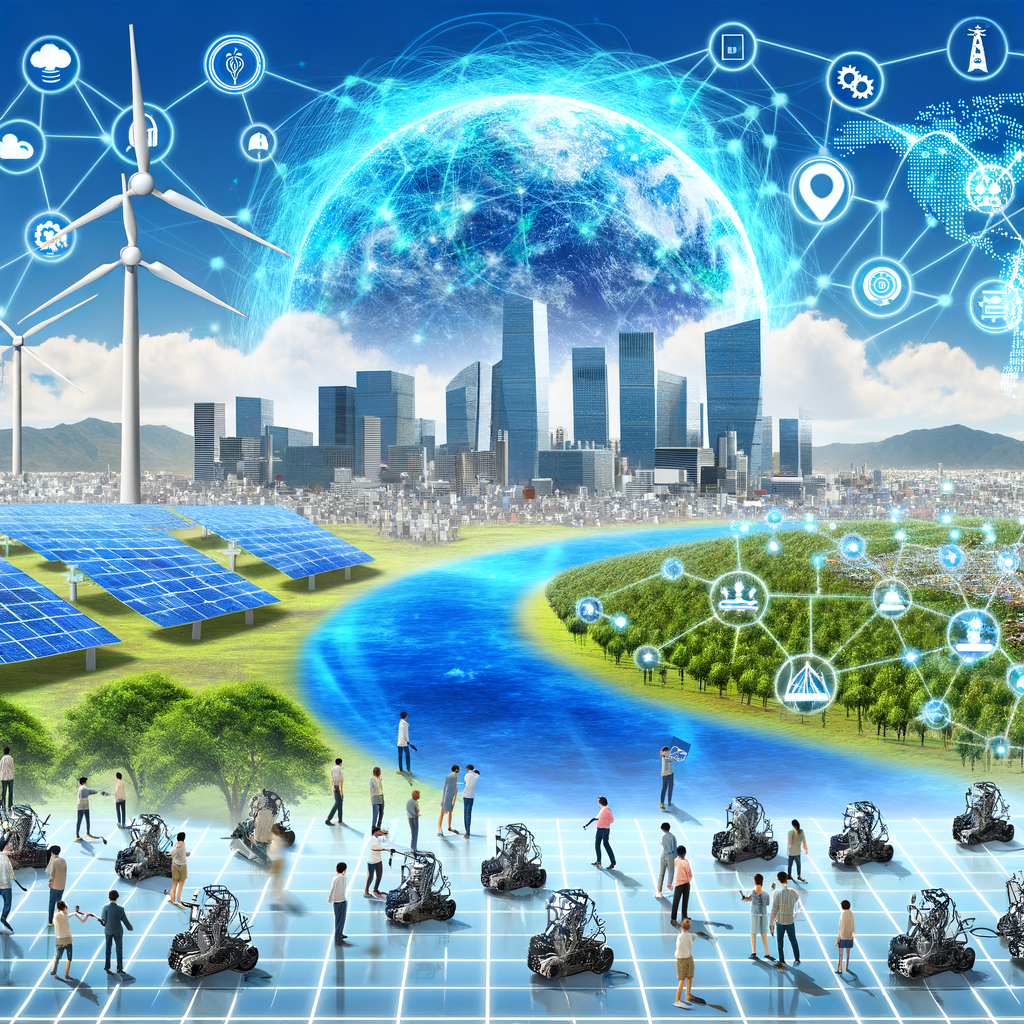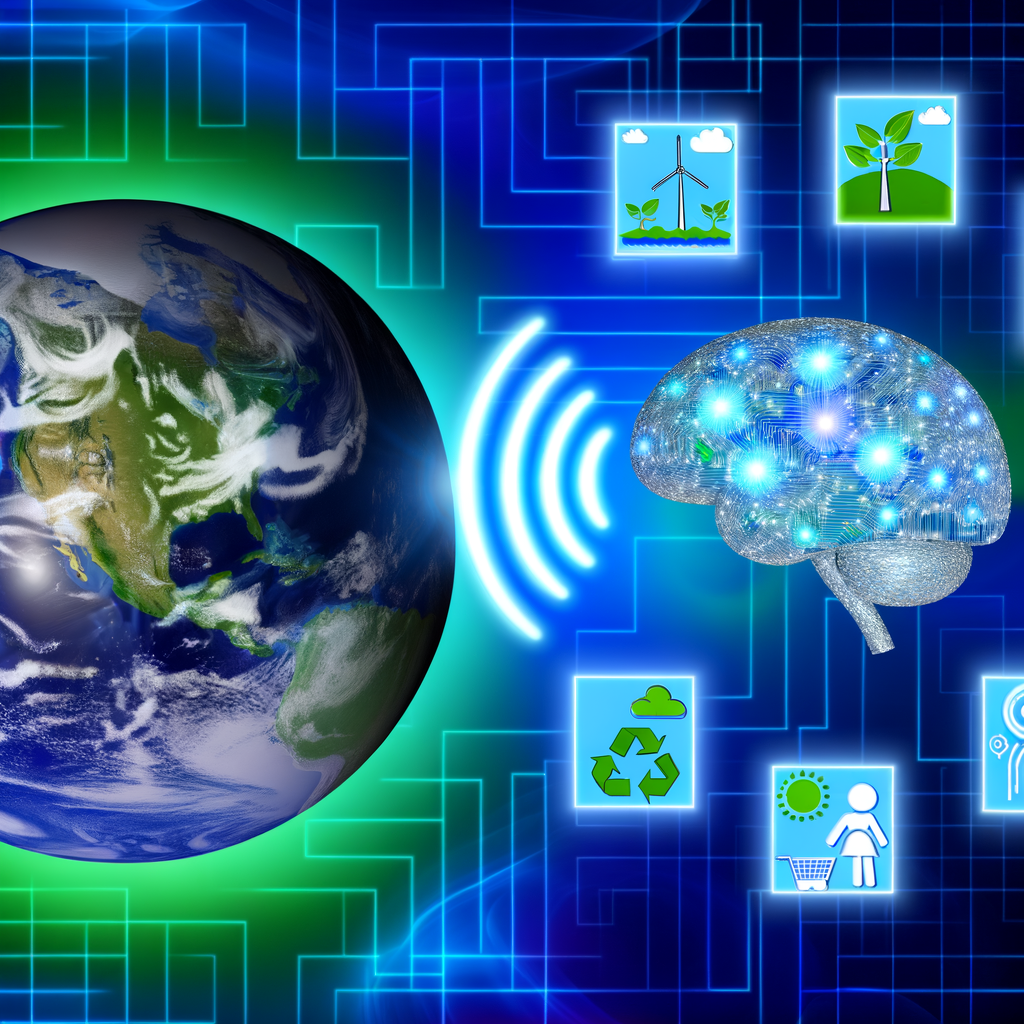Agentic AI: The Next Evolution of Technology in 2025
As we stand on the brink of an unprecedented technological revolution, the landscape of artificial intelligence is evolving at a breathtaking pace. While generative AI has made significant strides in creating content, a new frontier known as agentic AI is emerging, pushing the boundaries of what machines can do autonomously. This post explores the implications of agentic AI for our future, particularly as we move into the year 2025.
Understanding Generative AI vs. Agentic AI
To appreciate the impact of agentic AI, it’s crucial to distinguish between generative AI and its more advanced counterpart. Generative AI refers to algorithms that can produce text, images, music, and more – essentially replicating human creative processes. Platforms like OpenAI’s GPT-3 and DALL-E have showcased the potential for machines to generate impressive outputs based on specific prompts.
In contrast, agentic AI represents a quantum leap. It is not just about content creation; it involves autonomous decision-making and task execution. Agentic AI can perform tasks without direct human supervision, making it significantly more versatile and capable of solving complex problems.
The Rise of Agentic AI: What to Expect by 2025
As we look ahead to 2025, the proliferation of agentic AI is expected to transform various sectors, from healthcare to finance, education, and beyond. Here are some key areas where agentic AI will leave its mark:
1. Business Automation
Businesses are continuously seeking ways to improve efficiency and reduce costs. By 2025, many organizations will have fully integrated agentic AI systems into their operations. These systems will not only handle routine tasks—such as scheduling meetings or processing payments—but also adapt to changing circumstances, make predictive analyses, and offer strategic recommendations.
> *“Imagine a virtual assistant that doesn’t just answer queries but proactively manages your calendar, anticipates your needs, and optimizes your entire workflow.”*
2. Enhanced Decision-Making
Agentic AI will revolutionize decision-making processes. Traditional data analytics tools often require human intervention to interpret results, but agentic AI can analyze vast datasets autonomously and make recommendations based on real-time insights. For example, in healthcare, an agentic AI could monitor patient data and recommend tailored treatment plans without a physician’s input. This autonomous approach could enhance patient care and save precious time in critical situations.
3. Autonomous Transportation
The transportation sector is on the cusp of a major transformation with the advent of autonomous vehicles. By 2025, agentic AI will play a pivotal role in ensuring these vehicles can operate independently, making decisions based on a multitude of variables—including traffic patterns, weather conditions, and pedestrian behavior. This advancement could drastically reduce accidents and enhance the efficiency of transportation networks.
4. Personalized Learning Experiences
In the realm of education, agentic AI has the potential to create tailored learning experiences for students. Imagine an AI system that adapts in real-time to each student’s learning pace and style, providing personalized resources and assessments while guiding them through complex topics. This capability can ensure that every student receives the support they need to excel academically.
Challenges on the Horizon
While the potential benefits of agentic AI are substantial, we must also consider the challenges that accompany its rise. One of the most pressing concerns is ethical and responsible AI use. The autonomy of agentic AI means that systems could potentially operate without ethical considerations, leading to unintended consequences.
Moreover, as organizations increasingly rely on agentic AI for decision-making, there is a risk of overdependence. It raises a fundamental question: what happens when AI systems fail, make mistakes, or are susceptible to bias? Ensuring transparency, accountability, and implementing robust oversight mechanisms will be crucial as we integrate these technologies into our lives.
The Human-Machine Collaboration
The future of work will be defined by collaboration between humans and agentic AI, where each complements the other’s strengths. Human intuition, creativity, and emotional intelligence will remain vital, while agentic AI will handle repetitive tasks and complex analyses with efficiency.
> *“The synergy of human intelligence and agentic AI will unlock unprecedented levels of innovation and productivity.”*
As we embrace this collaboration, it is essential to cultivate a culture that emphasizes continuous learning and adaptation. Workers will need to acquire new skills that complement the capabilities of agentic AI—fostering an environment where human and machine coexist harmoniously.
Conclusion: Embracing the Future of Agentic AI
The emergence of agentic AI by 2025 represents a pivotal moment in the evolution of technology. Its ability to perform tasks autonomously opens up exciting possibilities across various sectors, redefining the roles of businesses, professionals, and even everyday individuals. However, it is essential to approach this transformative technology with caution, ensuring that ethical considerations guide its development and deployment.
As we stand on the cusp of this new technological era, embracing the potential of agentic AI while remaining vigilant about its challenges will shape a future that combines the best of both human and machine capabilities. The journey promises to be thrilling, and we’re just beginning to scratch the surface.


